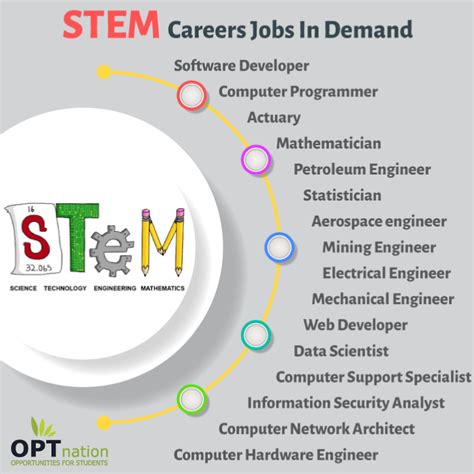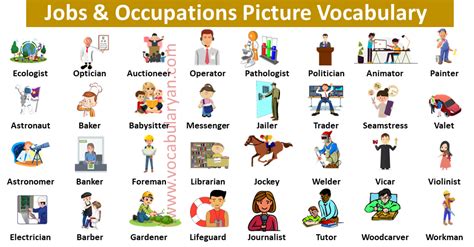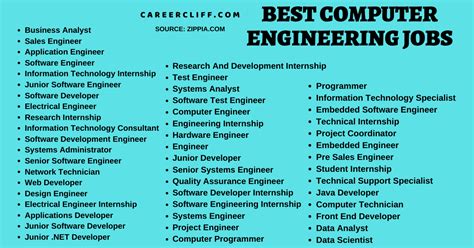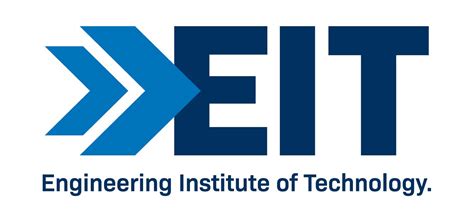5 Tech Careers

Introduction to Tech Careers

The world of technology is vast and diverse, offering a wide range of career opportunities for individuals with varying skills and interests. From software development to data analysis, tech careers are not only in high demand but also offer competitive salaries and job satisfaction. In this article, we will explore five tech careers that are currently trending, their job descriptions, required skills, and potential career paths.
1. Software Engineer

A software engineer is responsible for designing, developing, testing, and maintaining software applications. They use programming languages such as Java, Python, and C++ to create software programs that meet the requirements of clients or organizations. To become a software engineer, one needs to have a strong foundation in computer science, mathematics, and problem-solving skills. Some of the key skills required for this role include: * Programming languages: Java, Python, C++, etc. * Data structures and algorithms: Understanding of data structures such as arrays, linked lists, and trees, as well as algorithms such as sorting and searching. * Software development methodologies: Agile, Scrum, Waterfall, etc. * Collaboration and communication: Ability to work in teams and communicate effectively with clients and stakeholders.
2. Data Scientist

A data scientist is responsible for analyzing and interpreting complex data to help organizations make informed business decisions. They use statistical models, machine learning algorithms, and data visualization techniques to extract insights from large datasets. To become a data scientist, one needs to have a strong foundation in statistics, mathematics, and computer science. Some of the key skills required for this role include: * Programming languages: Python, R, SQL, etc. * Data analysis and visualization: Understanding of data visualization tools such as Tableau, Power BI, and D3.js. * Machine learning and deep learning: Knowledge of machine learning algorithms such as regression, clustering, and neural networks. * Communication and storytelling: Ability to communicate complex data insights to non-technical stakeholders.
3. Cybersecurity Specialist

A cybersecurity specialist is responsible for protecting computer systems, networks, and sensitive data from cyber threats. They use various security measures such as firewalls, encryption, and access control to prevent unauthorized access and data breaches. To become a cybersecurity specialist, one needs to have a strong foundation in computer science, networking, and security protocols. Some of the key skills required for this role include: * Network security: Understanding of network protocols such as TCP/IP, DNS, and DHCP. * Cryptography: Knowledge of encryption algorithms such as AES, RSA, and SHA. * Threat analysis and risk management: Ability to identify and mitigate potential security threats. * Compliance and governance: Understanding of security regulations such as HIPAA, PCI-DSS, and GDPR.
4. Artificial Intelligence/Machine Learning Engineer

An artificial intelligence/machine learning engineer is responsible for designing and developing intelligent systems that can learn and adapt to new data. They use machine learning algorithms, neural networks, and deep learning techniques to build models that can predict outcomes, classify data, and make recommendations. To become an AI/ML engineer, one needs to have a strong foundation in computer science, mathematics, and programming languages such as Python and R. Some of the key skills required for this role include: * Machine learning and deep learning: Knowledge of machine learning algorithms such as regression, clustering, and neural networks. * Programming languages: Python, R, Julia, etc. * Data preprocessing and feature engineering: Ability to preprocess and feature engineer data for model training. * Model deployment and maintenance: Understanding of model deployment strategies such as cloud deployment, containerization, and orchestration.
5. Cloud Computing Professional

A cloud computing professional is responsible for designing, deploying, and managing cloud-based systems and applications. They use cloud platforms such as AWS, Azure, and Google Cloud to build scalable, secure, and efficient systems that meet the needs of organizations. To become a cloud computing professional, one needs to have a strong foundation in computer science, networking, and cloud computing platforms. Some of the key skills required for this role include: * Cloud platforms: AWS, Azure, Google Cloud, etc. * Cloud security and compliance: Understanding of cloud security measures such as encryption, access control, and compliance regulations. * Cloud architecture and design: Ability to design and deploy cloud-based systems and applications. * Cloud migration and deployment: Understanding of cloud migration strategies such as lift and shift, re-architecture, and hybrid cloud deployment.
📝 Note: These careers are not only in high demand but also offer competitive salaries and job satisfaction. However, they require continuous learning and professional development to stay up-to-date with the latest technologies and trends.
The future of tech careers looks promising, with emerging technologies such as Internet of Things (IoT), Blockchain, and Quantum Computing creating new opportunities for innovation and growth. As technology continues to evolve, it is essential for professionals to stay adaptable, curious, and committed to lifelong learning.
The key to success in tech careers is to stay focused on building a strong foundation in programming languages, data structures, and software development methodologies. Additionally, it is crucial to develop soft skills such as communication, collaboration, and problem-solving to work effectively in teams and communicate complex technical concepts to non-technical stakeholders.
In summary, tech careers offer a wide range of opportunities for individuals with varying skills and interests. By understanding the job descriptions, required skills, and potential career paths, individuals can make informed decisions about their career choices and pursue a fulfilling and challenging career in tech.
What are the most in-demand tech careers?

+
The most in-demand tech careers include software engineering, data science, cybersecurity, artificial intelligence/machine learning engineering, and cloud computing.
What skills are required for a career in tech?

+
The required skills for a career in tech include programming languages, data structures, software development methodologies, and soft skills such as communication, collaboration, and problem-solving.
How can I stay up-to-date with the latest technologies and trends in tech?

+
To stay up-to-date with the latest technologies and trends in tech, it is essential to engage in continuous learning and professional development, attend industry conferences and workshops, and participate in online communities and forums.
Related Terms:
- Engineering Technology jobs salary
- Engineering jobs
- IET careers
- E t jobs
- Mechanical Engineering jobs
- Engineering technology jobs list



